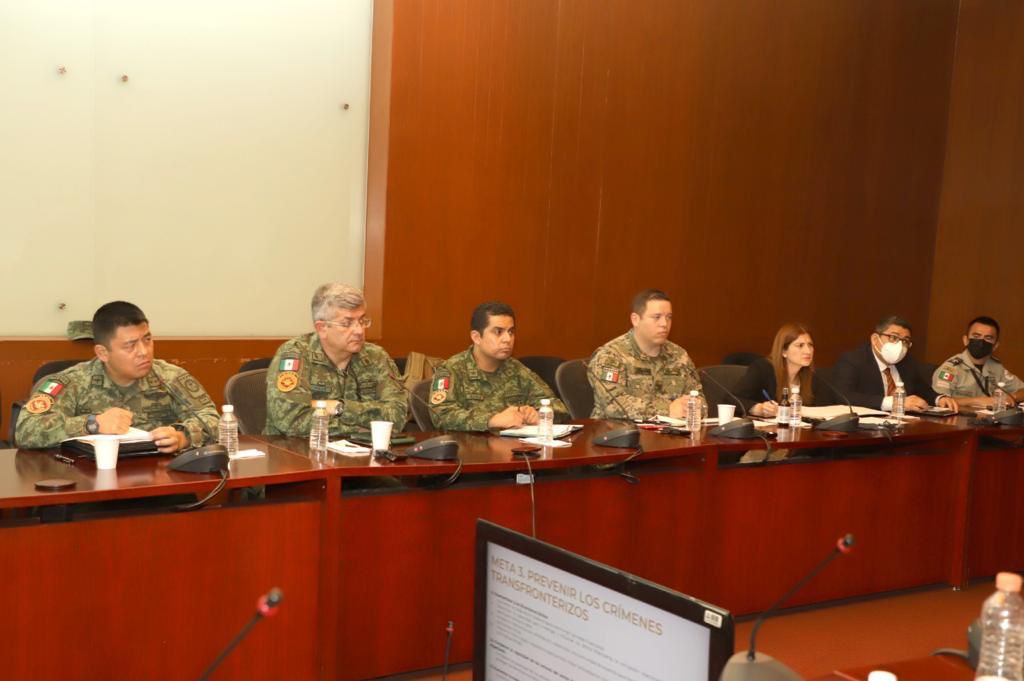
The government headed by President Andrés Manuel López Obrador decided to reserve information about meetings of Mexican officials with foreign agents and thus concealed the information it had initially provided.
As of August last year, the authorities had indicated 79 records of security encounters with representatives of other countries, mostly from the United States , according to a request for transparency obtained by Infobae Mexico.
But after this media disseminated information about the analysis of these data, they decided to correct to classify what corresponds to the following months, which contemplate the first year of the so-called Cienfuegos Law; the latter is about GUIDELINES that regulate the relationship of public servants with foreign agents, whose provisions came into force since January 15, 2021 following an amendment to article 70 of the National Security Law.
Through the transparency platform, the updated meetings were requested from January 15, 2021 to January 25, 2022, with the background of what had been granted to this medium by the Ministry of Foreign Affairs (SRE) in its General Directorate of Special Affairs. But they reserved any reports that they do record and intend to hide for the next five years.

As reported, these exchanges showed attention to the flow of migrants, arms trafficking and fentanyl, to the follow-up of assets seized from Joaquín Guzmán Loera, el Chapo, former leader of the Sinaloa Cartel.
Now, the SRE Transparency Committee argues that the relationship with the United States, foreign agents would be affected and drug traffickers could be alerted if the meetings held on this topic were disseminated. They also indicated that they would affect the degree of trust, good faith and diplomatic quality with other countries.
In the first reply they did not mention except criminal organizations in general and the process of the Financial Intelligence Unit to recover amounts generated by El Chapo Guzmán in his criminal business. Something that the same authorities had made public on several occasions.
Particularly with the United States, the agency argues that it would go against international reciprocity, because the Mexican government must give the same treatment as its main trading partner in relation to the data they hold, according to Executive Order 13526-Classified National Security Information, with which consider classified information from other nations, in addition, it would put informants of the authorities at risk.
These clarifications were not even considered initially, when it was already known of the possible effects with what was argued recently. To this end, it should be noted that the reservations are also based on the Bicentennial Understanding, an agreement on cooperation on binational security signed last October and announced as a farewell to the Merida Initiative of previous governments.
In addition, they point out that they would also damage and limit the powers of President Andrés Manuel López Obrador, since they could disrupt the diplomatic dialogue between agents responsible for implementing security collaboration projects. They even appealed to a 1992 agreement on combating drug trafficking and drug dependence to avoid unilateral decisions.
Affections to the institutional image and possibilities of contravening international law were also added. They reiterated that the link with Americans must be taken care of by geographical neighborhood, trade, compatriots, tourist flow, border relations, migration, environment and social and sustainable development, among others.

According to the amendment to Article 70 of the National Security Law, all levels of government must submit a written report to the SRE and the Ministry of Citizen Security and Protection (SSyPC), three days after the meeting with accredited foreign officials, whether the meeting is held outside Mexico or the agent's country of origin.
The surveillance apparatus was called the High Level Security Group and headed by Marcelo Ebrard, head of the Mexican Foreign Ministry. The Armed Forces and the SSyPC collaborate on the Council of this unit, as well as the Office of the Attorney General of the Republic, the Ministry of the Interior, the National Intelligence Centre, the Treasury and even the Ministry of Communications.
The document they re-provided indicates 461 communication exchanges between telephone calls, virtual conversations, face-to-face meetings, as well as e-mails. Until last August, the General Directorate of Special Affairs counted 59 meetings with foreign agents and received 20 reports from the Attorney General's Office of the State of Baja California.
Specialists consulted by Infobae México regarding these communications had agreed that they were not even all meetings, given the level of exchange between allies and follow-up in lower offices of both Governments.
What followed will not be known, if the reservation is appropriate, until 2027, when there is a new government other than that of López Obrador. Meanwhile, a complaint was submitted to the National Institute for Transparency, Access to Information and Protection of Personal Data for the response issued.
KEEP READING:
Últimas Noticias
Debanhi Escobar: they secured the motel where she was found lifeless in a cistern
Members of the Specialized Prosecutor's Office in Nuevo León secured the Nueva Castilla Motel as part of the investigations into the case

The oldest person in the world died at the age of 119
Kane Tanaka lived in Japan. She was born six months earlier than George Orwell, the same year that the Wright brothers first flew, and Marie Curie became the first woman to win a Nobel Prize

Macabre find in CDMX: they left a body bagged and tied in a taxi
The body was left in the back seats of the car. It was covered with black bags and tied with industrial tape
The eagles of America will face Manchester City in a duel of legends. Here are the details
The top Mexican football champion will play a match with Pep Guardiola's squad in the Lone Star Cup

Why is it good to bring dogs out to know the world when they are puppies
A so-called protection against the spread of diseases threatens the integral development of dogs




